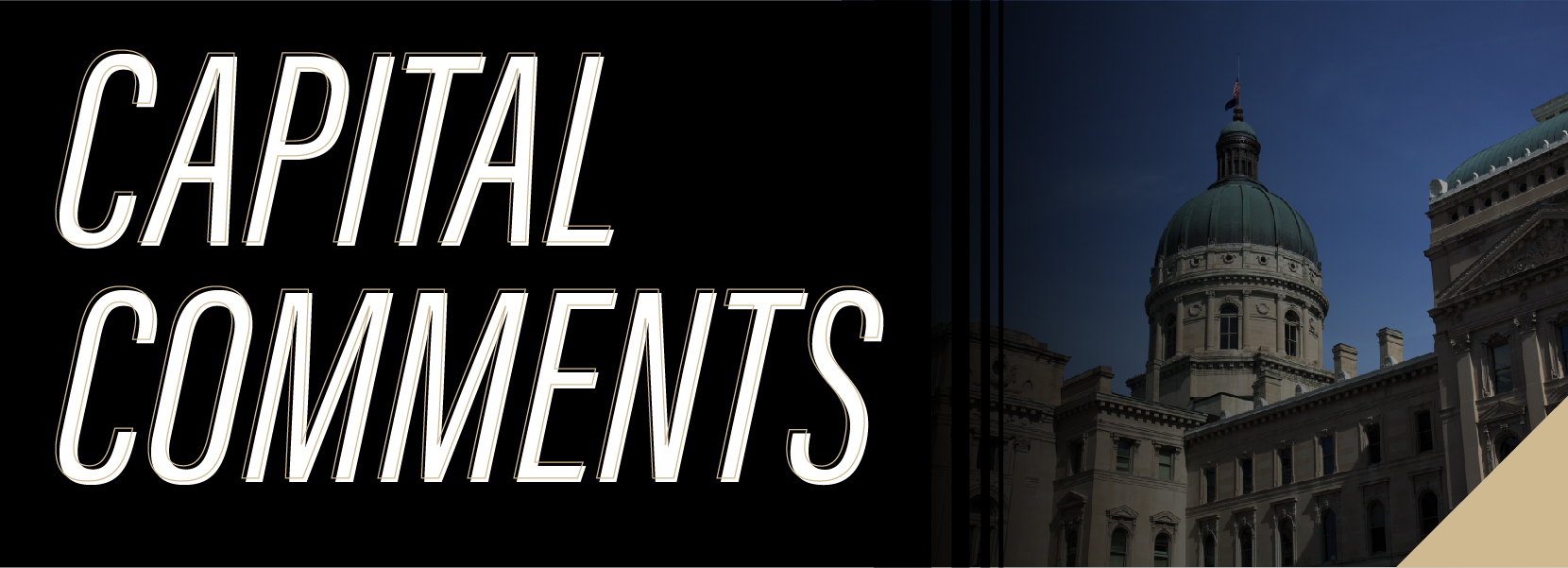The property tax is the biggest source of tax revenue for most Indiana local governments, and they were worried about the effect of the COVID recession on property tax revenues.
But rising home values in 2020 will increase assessed values for tax bills in 2022. The federal COVID relief bills increased Indiana income in 2020, so the state’s limit on property tax revenue will keep increasing in 2022. Tax rates are likely to fall in many jurisdictions next year, so fewer taxpayers will be eligible for tax cap credits. Local governments will collect a bigger share of their tax levies. Looks like the recession will not be a problem in 2022.
So, what should we worry about now? How about inflation?
We have no experience with high inflation. The Indiana property tax is much different today than it was during the high inflation of the 1970s. So let’s try to think it through.
Suppose there is a “pure inflation,” which adds the same increase to prices, incomes and property values. It couldn’t happen, but it’s a useful experiment to look at inflation’s effect.
Suppose property values rise with inflation. Assessed values rise. The maximum levy is based on income growth, so it rises too. If the levy and assessed value rise at the same pace, tax rates are unchanged. Rising assessed values increase the constitutional tax caps, so tax bills also increase.
Inflation would be annoying, but essentially nothing happens. Local governments have enough added revenue to pay their higher costs. Taxpayers still pay the same share of their inflated property values and incomes in property taxes.
What could mess this up? Any part of the tax system that doesn’t respond to inflation. I can think of four.
First, suppose inflation increases property values in 2021. Assessors measure this rise for assessed values in 2022. Those assessed values are used for tax bills in 2023. Assessments can’t reflect today’s inflation until then.
Second, the state limits property taxes to a maximum levy, which increases each year at a percentage called the maximum levy growth quotient. It’s based on a six-year average of Indiana non-farm income growth, calculated by the Department of Local Government Finance. In summer 2022 the DLGF will calculate the MLGQ for 2023, based on the most recent six income growth numbers, 2016 through 2021.
That means the growth rate of the property tax levy won’t begin to reflect 2021 inflation until 2023. Even then, the six-year average will include one year of high inflation, and five years of low inflation.
Inflation is raising local government costs now, in 2021. Some costs are fixed by contracts, but many must be rising. Assessments and maximum levies don’t respond, so local governments won’t have the revenue to cover inflation for at least two years.
We’re losing hope that the inflation will be transitory, but suppose it fades away during 2022, and is back in the 2% range by 2023. Assessments and the MLGQ will rise based on what happened in 2021. Local government budgets would begin to catch up.
What if inflation is sustained, though? Suppose it continues through 2028. At that point all six growth rates in the MLGQ would reflect inflation. Maximum levies would finally rise enough to cover cost increases.
Except for problem number three. The MLGQ has a legal maximum of 6 percent. If inflation is greater than that—as it is at the end of 2021—the maximum levy can never catch up to cost increases.
Now for number four. The standard deduction for most homes is fixed at $45,000. It’s subtracted from assessed value before the tax rate is applied. If home values rise rapidly, this fixed deduction becomes less important in reducing assessed values. Taxable assessed values would rise faster than home values. Homeowner taxes would rise faster than inflation.
That’s not a problem for local government budgets, but it could be a problem for local politics. Homeowners are voters, and they tend to complain when their taxes go up.
High inflation would squeeze local government budgets for a couple of years. If inflation is transitory, budgets would start to catch up in 2023. If inflation is sustained—well, let’s hope not.
